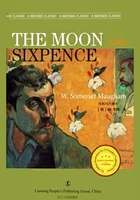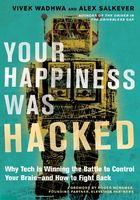RESEARCHING THE OTHER PARTY
Now that we have our objectives down, it's time to collect as much information as we can about what to expect from the other side during the negotiation event. To prepare for the negotiation, you want to get as much general information on the company you'll be dealing with as possible. You'll also want to know as much as possible about the individuals who will be sitting across the table from you and your team.
RESEARCHING THE COMPANY
Do a little research into the company's past negotiation history. Does it have a reputation for driving a hard bargain? Does it tend to use certain negotiation strategies and tactics? How concerned is it about reputation?
What are the company's goals, both long-term and short-term? What does it pride itself on? What are its published core values and vision? Can you get any insight into the company's unstated goals? Sometimes goals on paper are just that; the company may have other unstated priorities that influence how it will act.
Where does it stand, compared to competitors, in the market? Is it a new company? An old company? Is it considered a market leader in the industry? Follower? Innovator? Is it trying to expand into a new market? Is this its first government contract? If not, what percentage of the company's business is with the government? Is it small or large? Is it a subsidiary of a larger company? The answers to all these questions will give you important clues to how the company's negotiators are going to conduct themselves in the negotiation and thus how you should craft your approach to dealing with them.
Try to get insights into the company's cost structure. What is its standard profit margin? How does it price goods or services? Is it profitable? Is it considered the low-priced (and low-quality) leader, or the high-priced icon? Is its business or profit margins expanding or contracting? Is it starved for cash, desperate for business? Is it unionized?
Does the company have standard terms and conditions it habitually adheres to or ask for? What is its discount policy? What kind of warranties does it offer? Does it walk away from deals it perceives to be too risky? Does it have a reputation for trying to "buy-in" on contracts?
RESEARCHING THE COMPANY'S NEGOTIATORS
If you can, you also want to gather as much "intel" as possible on the individual who will be representing the contractor in the negotiation. To find out who that person is, all you need to do is ask the contractor! You could even consider requesting in the solicitation that companies identify this person in their proposals. Once you know who your counterpart is going to be, check out that individual's personal history in previous negotiations. If you haven't had dealings with that person, contact someone who has—another contracting officer, for example, even a contracting officer from a different agency or office. Just check the contractor's past performance information to find out whom to call. Then try to find out as much as you can about the person and how he or she negotiates.
What's his or her company job title? Does he or she even work for the company as an employee or as a professional negotiator brought in on a fee or contingent basis? How many government negotiations has he or she been involved in? What agencies were the contracts for? Is he or she new to the company? New to government negotiations?
Is he or she known for ethical or unethical behavior in the past? Does he or she have a reputation for making concessions or driving a hard bargain? When does the negotiator generally make most concessions—up front, during, or at the end of negotiations? Is he or she a technical subject-matter expert in the function being negotiated? Is he or she prone to making snap judgments?
What kind of negotiation style and tactics is the negotiator known to use? Does he or she change style and tactics frequently or act predictably? Is he or she perceived as using negotiation tricks? If so, which tricks does he or she like to use? Is he or she known to be a talker or a good listener? Does the negotiation tend to dominate conversations and talk about himself or herself? (You can turn this into great advantage at the negotiation table.) Does the negotiator like to take risks or is he or she cautious and risk averse?
As you gather this information on your counterpart and start assessing it, try to put yourself in his or her shoes. How do you think the negotiator views the situation? How do you think he or she perceives you? This exercise—putting yourself in your counterpart's shoes—will help you assimilate all the pieces of information you have collected or observed into a general picture of that negotiator as a real live person. With that picture, you will be in a better position to predict how that individual will act and react in the negotiation room.
Manager Alert
Anticipate your counterpart's actions by putting yourself in the negotiator's shoes, looking at issues the way you think he or she perceives them.
In a negotiation, information is power; the most informed side is the most prepared side—and that's usually the side that comes out on top. Don't feel bad about researching the other side. If you're up against a professional negotiator, I'll guarantee that he or she is already busy collecting this same information—as much of it as possible—on both your agency and you personally. As you'll see when we discuss some of the tactics that you can employ or that can be employed against you, it is well worth your time to learn everything you can about the other party prior to the negotiation.
INFORMATION SOURCES
Getting information about the other side is not as daunting as it first seems. Plenty of sources are readily available. We have already discussed ways to gather data to help you identify and set your negotiation positions and priorities. Many of these same sources can give you a double bang by providing general clues about the other side. The contractor's proposal, for instance, usually contains useful management summaries that give a glimpse into the company's overall motives, values, and objectives. Also, when you have prenegotiation exchanges with companies to obtain proposal-specific information, use these interactions to research the companies and the negotiators—their attitudes, how they react to certain approaches, how forthcoming they are, how willing to please they are, and the like.
Talk to government customers and technical personnel who have some experience dealing with that company. Certain professions and technical fields develop bonds between their practitioners that can transcend company, and even company/government, boundaries. Based on these ties, these other government folks may know a lot more about the real situation than even their contracting officers do!
A company's publicly available catalogs, brochures, news releases, and the like contain a wealth of useful information. But the best way to get information on the company or the negotiator is one we often overlook—simply ask! We tend to shy away from asking questions, especially ones we don't think will be answered. If that's the case with you, you've got to get over it. We'll give you some tips on how to ask questions effectively in Chapter 10.
Government databases and private for-profit sources can also be useful. Most of these are available on the web. You'll want to check out industry and trade association websites for the particular good or service you're negotiating. Dun and Bradstreet (www.dnb.com) and the Thomas Register (www.thomasregister.com) are good private database services.
Finally, use the Internet. Just punch the company's name into a search engine and you'll be amazed at the information that will pop up. Often, you can get useful results searching on the name of the individual you will be negotiating with. Be sure to also search on the topic (the goods or services) you'll be negotiating for. This search should bring up useful websites such as professional organizations.
INFO-GATHERING TIPS
Many people feel they just don't have the time to do this research. You know you should do it, and you know it will help you do a better negotiation job, but you have these nasty time constraints. What to do? You've simply got to learn to use your limited time wisely. A few shortcuts can help you get to the essential information you need quickly and efficiently.
First, treat researching the other side as a process, not an event. Divide the process into bite-sized chunks. If you set aside, for example, a particular day to cram it all in, you'll get bored and frustrated and consequently miss a lot of important information. Pace yourself. Cut the research into manageable chunks, and stretch it out. Always be in information-receive mode.
Second, tailor your research effort to the situation. Your time, energy, and effort have a real dollar cost, not only to you personally but also to your agency and taxpayers. Don't spend an inordinate amount of time doing elaborate research for small-dollar, simple negotiations. Tailor the amount and complexity of your research effort to the dollar value and complexity of what you are negotiating. You can also cut down on effort if you already have experience with the company or its negotiator—or know a trusted source that does. You're an important asset, so try to manage your vital time wisely.
Manager Alert
Tailor the amount and complexity of your market research effort to the dollar value and complexity of what you are negotiating.
Third, don't be afraid to ask questions directly of the contractor. Most human beings have a natural tendency to help people they consider less informed, less knowledgeable, or even less intelligent than they are. They can't help it—it makes them feel good. An effective way to create this perception is to admit you don't have all the answers. Say things like, "I don't understand your market. What kind of competition do you have?" Admitting you don't know all the answers humanizes you and makes people more receptive to you. Ask open-ended questions to generate not just answers but information.
By the way, once you ask a question, be quiet! The vast majority of us aren't great listeners, but it's a habit you need to develop if you want to be a successful negotiator. Resist the urge to elaborate or butt in after you've asked a question. You can't learn anything from talking, only from listening. In addition to the information you asked for, you may pick up unintentional slips, verbal intonations, or a certain emphasis that sends a message quite different from what is actually being said. Train yourself to hear not only what is being said but also what isn't being said. Whether your realize it or not, your negotiation has already begun when you start asking questions and researching the other party.
Manager Alert
Your negotiation has already begun when you start asking questions and researching the other party, so resist the urge to elaborate on your own statements. Train yourself to listen instead of talk.















